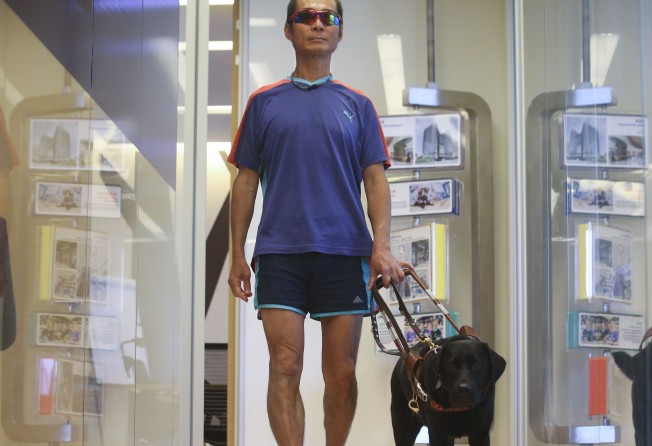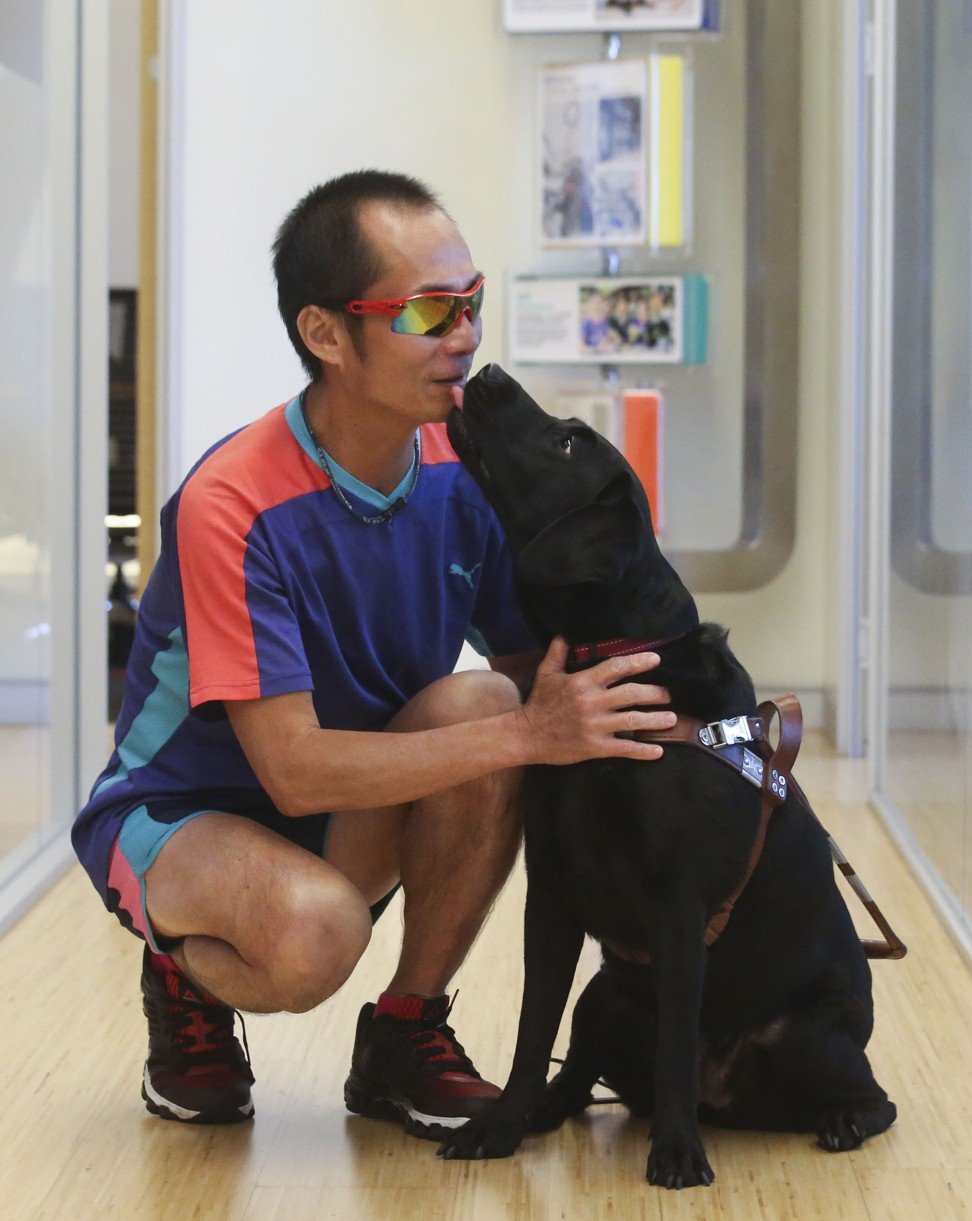How a guide dog led a blind Hong Kong athlete to a better life
Charity hopes for funding to encourage more of city’s visually impaired to use trained animals

A blind athlete who once contemplated suicide because of his disability has completely transformed his life and receiving a guide dog contributed to this, boosting his confidence while giving him a “big sense of security” to explore Hong Kong.
Gary Leung Siu-wai described how Gaga, his black Labrador from the Hong Kong Guide Dogs Association, had enabled him to become more independent since she came into his life in April this year.
The 50-year-old runner, who will attempt a 1,200km run over 19 days in Taiwan this October, said his new dog was far more effective than using a cane for daily navigation around the city.
“My life has changed a lot,” he said. “I go to shopping centres every day and take minibuses, and previously I always had to ask people for help. But now I have a guide dog, I just give her an order and she will help me.
“It is like I having a new friend living with me; I even treat her as my daughter. It really helps my interactions with other people – it seems all the people around me are friendly now.”
Gaga was named after an employee at one of the association’s sponsor companies, the Link Reit, a real estate investment trust, but Leung admitted he sometimes referred to Lady Gaga, the American pop singer when strangers in the street approached to pet his dog and ask about her.
Since birth, Gaga has been trained to respond to English commands, but Leung, who has another dog called Hugo, will start to combine these with some Cantonese instructions as she learns the tone of his voice.
“It gives me a big sense of security to have Gaga,” he said. “She alerts me to stairs and traffic. At the beginning of our training together, I didn’t feel comfortable; I needed time to get used to it. But now we understand each other better. She sometimes makes a mess at home, but after I clean it up, she gives me a lick because she knows I love her and she loves me.”
Leung suffered from nyctalopia or “night blindness” a retina defect in his childhood. He fully lost his vision in 2009. He said going blind caused him to spiral into depression, alcoholism and at one point even left him contemplating suicide.
But Leung eventually turned his life around after taking up running and shedding some 31kg to his current weight of 58kg.
He has accomplished impressive feats in the sport with his running partner Jennifer Cheung Sze-ying.
On January 21 and 22 this year, the duo completed a gruelling 100km run across the South Pole as part of the World Marathon Challenge 2017.
“I would say to people: don’t give up,” Leung said. “If you give up on your life, you will only lose out yourself.”
Leung said Gaga also helped with his marathon training, and although he had to slow down with her by his side for safety reasons, she was “overall very helpful”.
There are currently less than 30 guide dogs in Hong Kong, 16 of which have been provided through the association. The charity estimated that only 1 per cent of the 174,800 visually impaired in Hong Kong – about 1,700 people – were seeking a guide dog.
But it suggested that the number of visually impaired people who would benefit from using the animals could be much higher.
However, Hong Kong’s small apartments, crowded streets and limited green spaces mean the city is not an ideal place to own a dog.
The Link has sponsored the association’s “Love Leads the Way” programme since 2014.
Andy Ho, executive director of the association, which is celebrating its sixth anniversary this year, said he was very grateful for any corporate sponsorship, but added that his organisation urgently needed more funding.
“It is extremely difficult to broaden a programme like this,” he said. He added that given the relatively low numbers of visually impaired people owning a guide dog, it was unlikely that the government would prioritise the campaign for subsidies. That was why the association relied on corporate funding, he said.
Guide dog owners in Hong Kong, many of whom are from low-income families, must pay the day-to-day costs of owning their pet, but the association pays for the estimated HK$250,000 it costs to breed and train a dog up to the sufficient standard.
